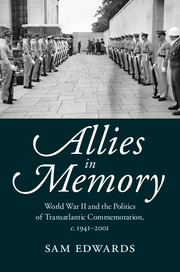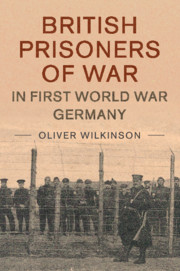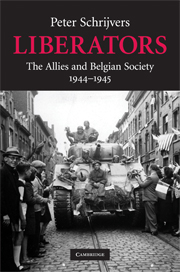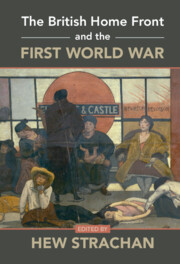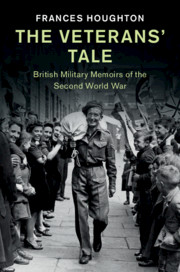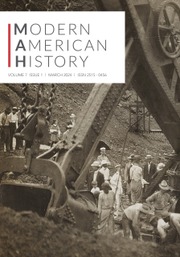Allies in Memory
World War II and the Politics ofTransatlantic Commemoration, c.1941–2001
£79.00
Part of Studies in the Social and Cultural History of Modern Warfare
- Author: Sam Edwards, Manchester Metropolitan University
- Date Published: March 2015
- availability: In stock
- format: Hardback
- isbn: 9781107074576
£
79.00
Hardback
Other available formats:
Paperback, eBook
Looking for an inspection copy?
This title is not currently available on inspection
-
Amidst the ruins of postwar Europe, and just as the Cold War dawned, many new memorials were dedicated to those Americans who had fought and fallen for freedom. Some of these monuments, plaques, stained-glass windows and other commemorative signposts were established by agents of the US government, partly in the service of transatlantic diplomacy; some were built by American veterans' groups mourning lost comrades; and some were provided by grateful and grieving European communities. As the war receded, Europe also became the site for other forms of American commemoration: from the sombre and solemn battlefield pilgrimages of veterans, to the political theatre of Presidents, to the production and consumption of commemorative souvenirs. With a specific focus on processes and practices in two distinct regions of Europe – Normandy and East Anglia – Sam Edwards tells a story of postwar Euro-American cultural contact, and of the acts of transatlantic commemoration that this bequeathed.
Read more- Explores war memory from an innovative transnational, and specifically 'transatlantic', perspective
- Offers an engaging examination of post-1945 transatlantic cultural connections and Euro-American relations
- Allows readers to consider contrasts and connections between post-1945 commemorative activities in two different regions of Europe
Reviews & endorsements
'In this book Sam Edwards shows that he is a historian capable of investigating a complex history in a multifaceted way navigating his way through the tricky and occasionally overlapping narratives developed by each culture. He shows the way the memory of the war has grown and adapted, the inherently political biases of all forms of commemoration and the fact that messages are altered, created or reinforced to suit different cultures at different times. All this is done in a text that is engaging and readable. This is a major contribution to our understandings of war memory.' Mark Connolly, University of Kent
See more reviews'Drawing on an impressive array of primary and secondary sources Sam Edwards weaves together a brilliant and fascinating explanation of American and European commemorative representations of World War Two. Having embarked upon this challenging and difficult subject, Edwards consummates it with flair and insight. He explains both the complex interactions between those primarily responsible for constructing commemorative representations and the effects of feedback upon them of historical developments. All this will enthrall the reader.' Alan Dobson, Swansea University
'Sam Edwards has provided a brilliant and fascinating study that causes us to rethink our understanding of the nature and purpose of commemoration and the relationship between Britain and the USA. Rising above and beyond traditional parochial interpretations, he demonstrates a rich and complex history of how we interpret our collective past, and shows how that has shaped transatlantic relationships since 1945. An exemplary piece of historical analysis and highly recommended.' John Buckley, University of Wolverhampton
'This study of transatlantic commemoration demonstrates that the concerns of the present always shape the ways in which the past is recollected. Memorials erected by American veterans 'were not simply disinterested statements of remembrance honouring lost comrades, nor were they politically neutral expressions of grief and gratitude. Rather, these memorials encoded a set of historically specific attitudes and assumptions' regarding World War II and the continuing American military presence in Europe.' Patrick Hagopian, Lancaster University
'This is a book of extraordinary scope. Sam Edwards leads us on a journey through the material remnants of war, charting the way that memorialization was plotted across the landscapes of southern Britain and France. From deserted airfield runways that once carried B17 bombers, to village churchyards, memorial gardens and landing beaches remade as cemeteries, Edwards explores the complex construction of memory and the politics that shape it. He examines the dynamic interplay of diverse memory agents, veterans recalling their own war experience, local communities creating a sense of heritage, and the cultural and political agencies that fund commemoration on both sides of the Atlantic. This book will be of interest to any scholar of the Second World War … Beautifully written, carefully researched and informed by a vast but never intrusive historiography, Allies in Memory is a welcome contribution to a long neglected field.' Bruce Scates, Monash University, Victoria
'Well indexed, referenced, and appropriately illustrated … Recommended. Upper-division undergraduates and above.' Choice
'This book is a latecomer to an intense wave of scholarly interest in commemoration, particularly of war and conflict, which began in the mid-1990s. … Edwards tells an important story and he does it with no small amount of verve.' Adam R. Seipp, The Journal of Modern History
Customer reviews
Not yet reviewed
Be the first to review
Review was not posted due to profanity
×Product details
- Date Published: March 2015
- format: Hardback
- isbn: 9781107074576
- length: 308 pages
- dimensions: 235 x 158 x 19 mm
- weight: 0.63kg
- contains: 12 b/w illus.
- availability: In stock
Table of Contents
Introduction
Part I. Remembrance and Reconstruction, c.1917–69:
1. Old World and New World: interwar transatlantic commemoration, c.1917–41
2. 'Here we are together': air war and the anglicisation of American memory, c.1941–63
3. 'These memories shall not be forgotten': D-Day and transatlantic memory, c.1944–69
Part II. Americanisation and Commercialisation, c.1964–2001:
4. 'It looks so different now': veterans' memory, c.1964–84
5. 'The last good war': Vietnam, victory culture and the Americanisation of memory, c.1964–84
6. 'One last look': the commercialisation of memory, c.1984–2001
Conclusion
Bibliography
Index.
Sorry, this resource is locked
Please register or sign in to request access. If you are having problems accessing these resources please email lecturers@cambridge.org
Register Sign in» Proceed
You are now leaving the Cambridge University Press website. Your eBook purchase and download will be completed by our partner www.ebooks.com. Please see the permission section of the www.ebooks.com catalogue page for details of the print & copy limits on our eBooks.
Continue ×Are you sure you want to delete your account?
This cannot be undone.
Thank you for your feedback which will help us improve our service.
If you requested a response, we will make sure to get back to you shortly.
×
